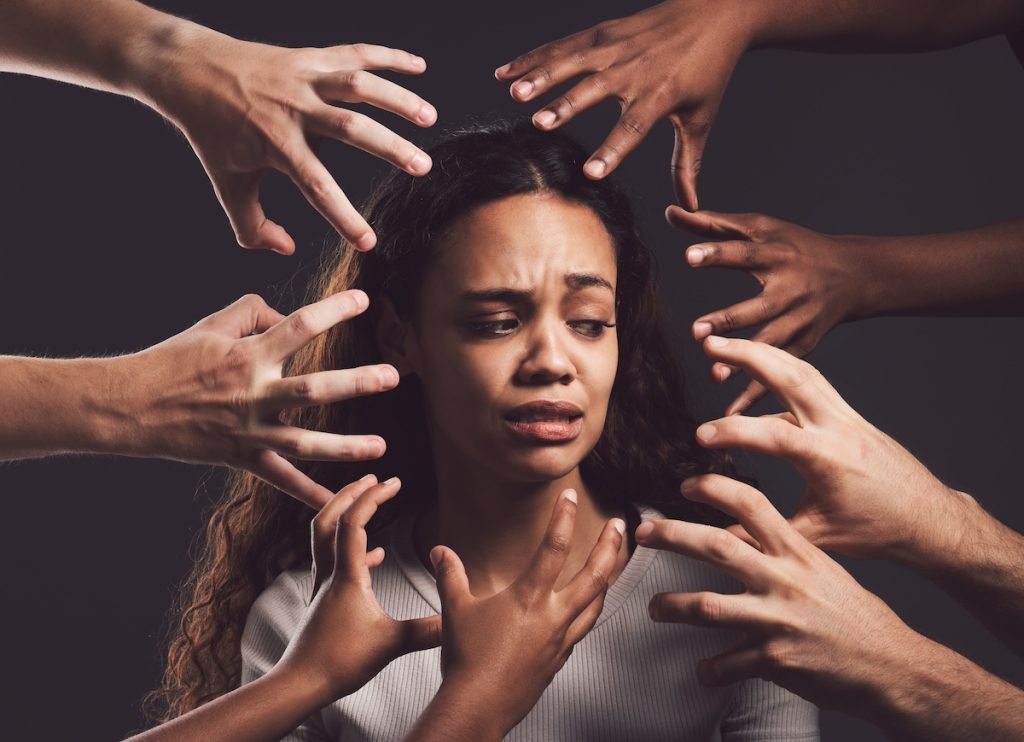
Understanding Trauma Therapy: Treatments and Approaches to Healing
November 7, 2024
Coping with Depression During the Holidays: Strategies for Managing Depression from Thanksgiving to New Year’s
November 14, 2024
Trauma is a profoundly distressing experience that can leave lasting emotional, psychological, and even physical scars. Many people carry unresolved trauma from their past, including childhood trauma, without fully realizing it. Symptoms can manifest in different ways, sometimes subtly, making it difficult to recognize.
Whether you’ve experienced a recent traumatic event or have been carrying trauma for years, understanding the signs can help you begin the healing process. In this blog, we’ll explore the symptoms, types, and how unresolved childhood trauma can impact adults.
What Is Trauma?
Trauma is the emotional and psychological response to a distressing or life-threatening event, such as abuse, accidents, violence, loss, or natural disasters. While it affects everyone differently, it often disrupts a person’s sense of safety and leaves them feeling helpless or overwhelmed. Trauma can occur as a result of a single event (acute trauma) or over time through repeated exposure to distress (chronic or complex trauma).
The lasting effects can carry over into adulthood, even when the traumatic event occurred during childhood. When left unaddressed, trauma can influence relationships, emotional well-being, mental health, and daily functioning.
Symptoms of Trauma
Recognizing the symptoms of trauma can be challenging, especially when they develop gradually over time. Symptoms can appear immediately after the event or surface months or years later. Below are some common signs that indicate you may be carrying unresolved trauma.
- Emotional Symptoms: Traumatic experiences often lead to intense and fluctuating emotions. You might feel irritable, angry, anxious, or depressed without fully understanding why. Mood swings and emotional numbness, where you feel disconnected from your emotions, are also common. Additionally, feelings of guilt, shame, or hopelessness are frequent in individuals dealing with trauma.
- Flashbacks or Intrusive Memories: A key sign of unresolved trauma is experiencing flashbacks or intrusive memories, where you involuntarily relive the traumatic event. These can feel like vivid, disturbing memories that surface unexpectedly, triggered by a person, place, sound, or smell that reminds you of the original event.
- Nightmares: Trauma can manifest in sleep disturbances, such as nightmares related to the event. People suffering from trauma may also have difficulty falling or staying asleep due to anxiety, hypervigilance, or fear of reliving it in their dreams.
- Physical Symptoms: Trauma doesn’t just affect the mind; it can manifest physically as well. Common physical symptoms include headaches, stomach issues, muscle tension, and chronic pain. Some people may experience unexplained fatigue or feel constantly on edge, known as hyperarousal. Hyperarousal occurs when the body remains in a heightened state of alertness as if it’s still reacting to the traumatic event.
- Avoidance: One of the ways people cope with trauma is through avoidance. This means avoiding places, situations, or people that might remind you of the traumatic event. You may avoid talking about what happened or feel emotionally distant from others, which can strain relationships.
- Difficulty Concentrating: Trauma often leads to cognitive symptoms, such as trouble focusing or remembering details. You may find yourself easily distracted or unable to concentrate on tasks for extended periods.
Types of Trauma Symptoms
Trauma symptoms fall into different categories, affecting other aspects of a person’s life. Understanding the types of symptoms can help identify whether you’re dealing with trauma.
- Emotional and Psychological Symptoms: These include feelings of fear, anxiety, depression, anger, irritability, guilt, and emotional numbness. Intrusive thoughts, flashbacks, and difficulty regulating emotions are also common emotional symptoms.
- Physical Symptoms: These symptoms can range from fatigue and sleep disturbances to chronic pain, digestive issues, and a heightened startle response. Trauma can also weaken the immune system, making individuals more susceptible to illness.
- Behavioral Symptoms: Behavioral changes are another sign of trauma. These might include isolation, withdrawing from friends or family, and engaging in risky behaviors like substance abuse. Avoidance behaviors, like steering clear of specific people or places, are also common.
- Cognitive Symptoms: Trauma can disrupt cognitive functions, leading to problems with memory, concentration, and decision-making. You may feel like your thoughts are racing or have trouble organizing them.
Childhood Trauma in Adults
Childhood trauma can leave a lasting impact, often carrying over into adulthood in ways that may not be immediately obvious. In adults, it can present itself in various ways, including difficulty forming relationships, trust issues, low self-esteem, and a tendency to be hypervigilant or anxious in certain situations.
Adults with unresolved childhood trauma may struggle with feelings of abandonment, rejection, or inadequacy. They might engage in self-destructive behaviors or have difficulty regulating their emotions, leading to mood swings or bouts of depression. The emotional and psychological effects often manifest in adult relationships, where unresolved fears and anxieties from childhood can create tension or dysfunction.
For example, an individual who experienced neglect or abuse in childhood may find it difficult to trust others or to form secure attachments in adult relationships. Similarly, they may be overly sensitive to perceived criticism or rejection, leading to conflict or feelings of isolation.
Seeking Help for Trauma
If you recognize these symptoms in yourself or feel like you’re carrying unresolved trauma from the past, seeking professional help can be an important step toward healing. Trauma therapy, including cognitive-behavioral therapy (CBT), eye movement desensitization and reprocessing (EMDR), and other trauma-informed approaches, can help you process your experiences and develop healthy coping mechanisms.
Get Help Today
Recognizing the symptoms of trauma is the first step toward healing. Whether it’s emotional, physical, behavioral, or cognitive, it can manifest in various ways, often long after the traumatic event has occurred. Childhood trauma in adults can have a profound impact on emotional well-being and relationships, making it crucial to address these issues through therapy and support. By understanding the types of trauma symptoms and seeking help, you can begin to process your trauma and work toward a healthier, more balanced life.
_________________________________________________________________________________
Looking for treatment for an eating disorder, anxiety, depression, trauma, or postpartum mood disorder?
Evolve Counseling Services is a specialized team of Licensed Therapists providing treatment in Paoli.



